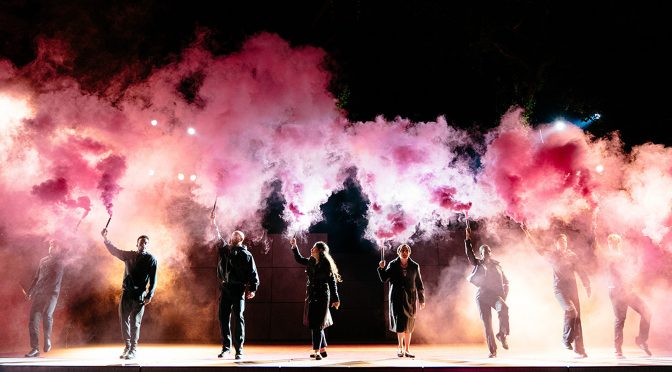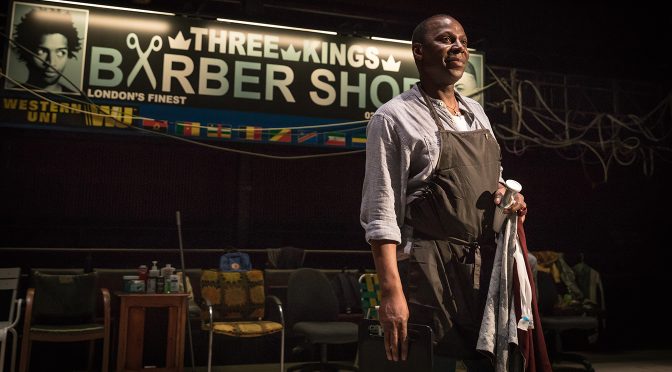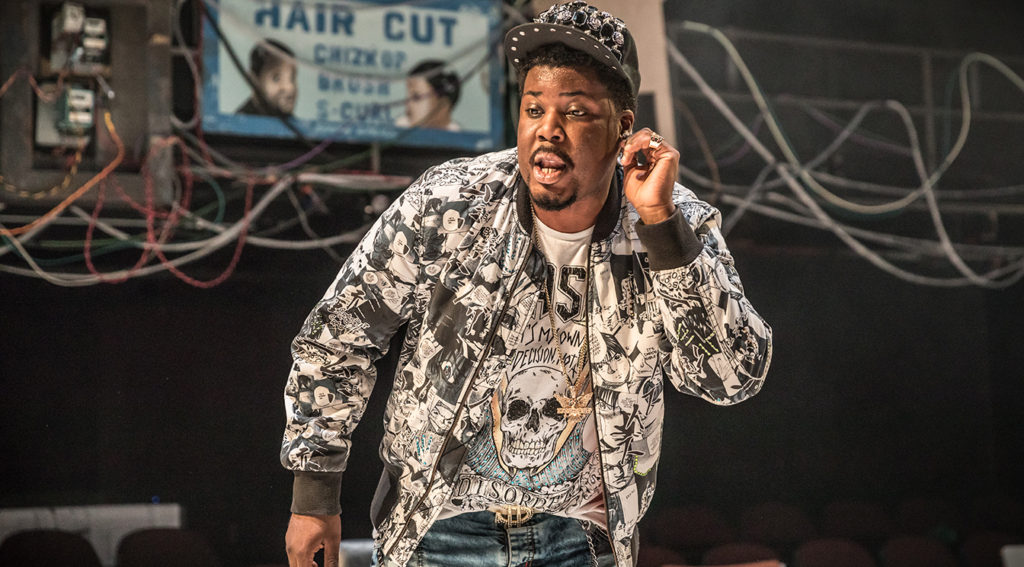Inua Ellams’s adaptation – after Sophocles – is a strong piece full of bold thinking. As a play about democracy, the work feels timely. And there is a passion to both the writing and the production that creates a formidable energy.
Antigone is re-imagined as a youth leader from a Muslim background. One of her brothers becomes a police officer and the other a terrorist. It’s the latter who is denied a burial by Prime Minister Creon, who passes oppressive anti-terrorist laws and gets rid of the bill of human rights.
The changes are though-provoking and benefit from fulsome characterisation: not just Zainab Hasan’s lead role, which she performs with aplomb, but all Antigone’s family, who are depicted with equal care. The result is great roles for her brothers Eteocles and Polyneices, played by Abe Jarman and Nadeem Islam respectively. And her sister Ismene, played by Shazia Nicholls, is far more than the usual foil. Creon, who has been looking after the family, is made a strong study in power and Tony Jayawardena’s performance in the role is superb.
Ellams’s appraisal is full of intelligence, leaving the efficacy of protest an uncomfortably open question. Our heroine is released from prison through public opinion rather than debate – it’s ratings that count for rulers. And Ellams has a strict eye on privilege; it’s made clear that Antigone and her family have power. The roles of Haemon and Eurydice come to the fore, making important parts for Oliver Johnstone and Pandora Colin who bring a great deal of emotion to the show.
Sections of the script in verse are the highlight: Ellams’s language brings force to the stage. But while the choreography from Carrie-Anne Ingrouille is good, the music by Michael ‘Mikey J’ Asante is overpowering. Sound is often tricky at Regent’s Park but isn’t the only problem in the production. Ellams’s plotting is great – this Antigone is exciting – but Max Webster’s direction feels rushed. A fast pace doesn’t always make a play more thrilling; the production comes across as nervous.
There are, also, tensions between the original and what Ellams’s has made from it. The contrasts are welcome but cause clucky moments. The remnants of Sophocles’s play, like the characters’ names or concerns for the city state, lead to stumbles. The show needs more change rather than less. Overall, this isn’t a big problem. And the solution seems easy – keep the structure of the source but do away with the ornament – but it does stop good ideas becoming great theatre.
Until 24 September 2022
Photos by Helen Murray



